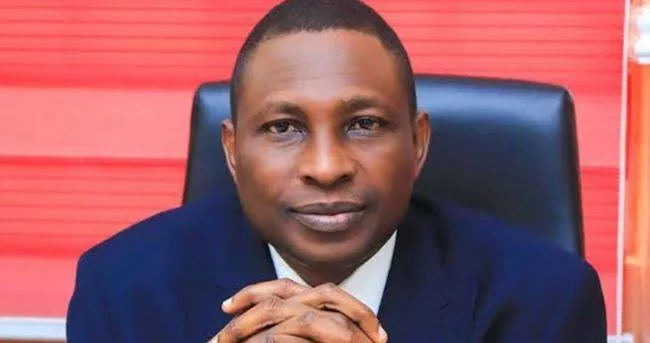The Economic and Financial Crimes Commission (EFCC) has said that the people who steal Nigeria’s resources are both Christians and Muslims, stressing that the fight against corruption is a collective battle for the soul of Nigeria.
Executive chairman of EFCC, Ola Olukoyede, disclosed this in his remarks at a two-day workshop on enhancing fiscal discipline in the management of local governments, organised by the Kaduna State Ministry of Local Government in Kaduna.
He maintained that corruption has no colour, tribe and religion.
Represented by the EFCC Zonal Commander, ACE Aisha Abubakar, the EFCC boss urged the third tier of government to support the anti-corruption drive of the present administration of President Bola Tinubu.
He noted that the local government tier, being the government nearest to the populace, is one of the best agencies that can drive the much-needed wider participation of the local population in the anti-corruption campaign.
Olukoyede said: “Let me stress here, that corruption has no colour, no tribe and religion. The people that steal Nigeria’s resources are both Christians and Muslims. It is not a battle between religions; corruption fight is also not between tribes. What we are fighting in this country is a battle between good and evil; it is a collective battle for the soul of Nigeria; a battle for the future generation of yet unborn Nigerians; it is indeed, the battle for the future of Africa.
“We must not create an environment where when we punish people because they have engaged in corruption, we will give them protection because they come from our tribes.The quest to ensure that we do not create an environment for the corrupt to take over our society, is one that belongs to every one of us. It should not be left only to the EFCC and sister anti-graft agencies.”
In her remarks, Kaduna State deputy governor, Dr. Hadiza Sabuwa Balarabe, said the workshop was to ensure that key functionaries of Local Governments in the state catch up with best global practices in financial discipline.
Balarabe said: “There are many things that we take for granted that can disrupt financial systems and land you in the custody of the EFCC or ICPC. Financial transparency is very important, but you do not necessarily have to steal public funds to get into trouble. For instance, misappropriation could involve using money for a purpose or project not intended by law, which constitutes an offence that is punishable.”





